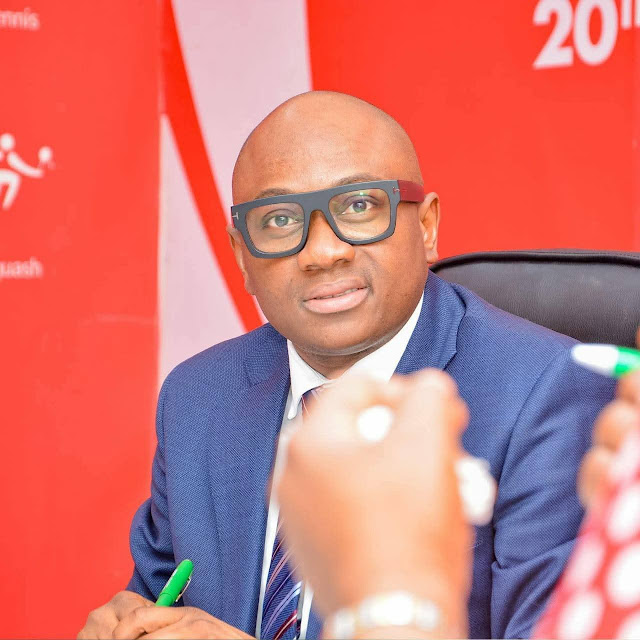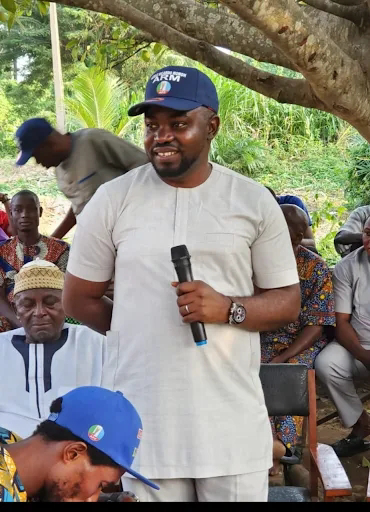In a compelling address delivered on Wednesday during the 34th-anniversary celebration of Anambra State in Awka, Governor Chukwuma Soludo provided a transformative vision for the state, redefining the concept of “stomach infrastructure” as a commitment to delivering essential services that uplift citizens’ livelihoods and foster long-term prosperity. Moving away from the conventional interpretation of the term, which is often associated with short-term handouts or political patronage, Soludo emphasized that true stomach infrastructure lies in providing sustainable solutions through investments in agriculture, healthcare, education, and infrastructure. This approach, he argued, ensures that residents have access to the tools and opportunities needed to live with dignity and break free from the cycle of poverty. The governor’s speech not only highlighted his administration’s achievements but also outlined a bold roadmap for Anambra’s future, positioning the state as a model for sustainable development in Nigeria.
Redefining Stomach Infrastructure
Governor Soludo’s redefinition of “stomach infrastructure” marks a significant departure from the populist practices that have characterized governance in many parts of Nigeria. In his address, he clarified that the term should not be equated with distributing cash or offering political appointments as a means of gaining favor. Instead, he presented a vision of stomach infrastructure that focuses on addressing the root causes of poverty and deprivation through strategic investments in critical sectors. “Stomach infrastructure is not about distributing cash or offering appointments as special advisers,” Soludo declared. “It is about ensuring residents have access to the basic necessities needed to live with dignity and rise out of poverty.”
This perspective reflects Soludo’s background as an economist and former Governor of the Central Bank of Nigeria, where he earned a reputation for implementing policies grounded in long-term economic stability rather than short-term gains. By prioritizing sustainable development over temporary palliatives, Soludo is challenging the status quo and advocating for a governance model that empowers citizens to become self-reliant. His approach aligns with global development frameworks, such as the United Nations Sustainable Development Goals (SDGs), which emphasize the importance of eradicating poverty, ensuring food security, improving health and education, and building resilient infrastructure.
Key Achievements of the Soludo Administration
During the anniversary celebration, Governor Soludo outlined the significant strides his administration has made in transforming Anambra State since he assumed office. These achievements span multiple sectors and demonstrate a commitment to improving the quality of life for all residents. Among the highlights are:
Agricultural Transformation: Recognizing the critical role of agriculture in achieving food security and economic diversification, the Soludo administration has distributed over 2.6 million palm and coconut seedlings to 180,000 households across the state. This initiative is part of a broader strategy to revive Anambra’s agricultural sector, which has the potential to create jobs, reduce poverty, and boost the state’s economy. Palm and coconut farming, in particular, are high-value crops with significant export potential, and the distribution of seedlings is expected to empower farmers to increase their productivity and income. By focusing on agriculture, Soludo is not only addressing immediate food needs but also laying the foundation for long-term economic growth.
Free Education in Public Schools: Education is a cornerstone of Soludo’s vision for Anambra, and his administration has made significant investments to ensure that every child has access to quality education. The introduction of free education in public schools has removed financial barriers for thousands of families, enabling children from low-income households to attend school without the burden of fees. This policy aligns with Soludo’s belief that education is a fundamental right and a critical tool for breaking the cycle of poverty. By investing in education, the state is equipping its youth with the knowledge and skills needed to compete in a rapidly changing global economy.
Free Antenatal and Delivery Services: In the healthcare sector, Soludo’s administration has introduced free antenatal and delivery services in government hospitals, a move that has been widely praised for its impact on maternal and child health. By eliminating the cost of these essential services, the state is ensuring that pregnant women, particularly those in underserved communities, have access to safe and affordable healthcare. This initiative is expected to reduce maternal and infant mortality rates, improve health outcomes, and promote gender equity by addressing the unique challenges faced by women.
Recruitment of Health Workers and Teachers: To strengthen the healthcare and education sectors, the administration has recruited over 1,000 health workers and 8,115 teachers. These professionals are critical to delivering quality services and ensuring that the state’s investments in these sectors translate into tangible results. The recruitment of health workers has bolstered the capacity of government hospitals to provide care, while the addition of thousands of teachers has improved the teacher-student ratio in public schools, enhancing the quality of education.
Infrastructure Development: Infrastructure is a key pillar of Soludo’s stomach infrastructure agenda, and his administration has made remarkable progress in this area. Over 600 kilometers of roads have been commissioned out of a targeted 800 kilometers, improving connectivity and facilitating economic activity across the state. These roads not only enhance access to markets, schools, and healthcare facilities but also attract private sector investment by creating a more conducive environment for business. The focus on infrastructure reflects Soludo’s understanding that reliable transportation networks are essential for economic growth and social development.
Youth Empowerment: Recognizing the potential of Anambra’s youth, the administration has empowered over 5,000 young people through various programs, with plans to reach an additional 8,000 in the near future. These initiatives include skills acquisition programs, entrepreneurship training, and access to microfinance, all of which are designed to enable young people to become economically independent. By investing in its youth, Anambra is harnessing the demographic dividend of its young population, positioning them as drivers of innovation and economic growth.
Minimum Wage Increase: In a move that underscores his commitment to improving the welfare of workers, Soludo announced the implementation of an N82,000 minimum wage for civil servants in Anambra. This significant increase, one of the highest in Nigeria, reflects the administration’s recognition of the importance of fair compensation in motivating workers and boosting productivity. The higher minimum wage is expected to improve the standard of living for thousands of families and stimulate economic activity by increasing disposable income.
A Vision for Sustainable Development
Governor Soludo’s emphasis on sustainable development is rooted in the belief that short-term palliatives, while providing temporary relief, do not address the underlying causes of poverty and underdevelopment. By focusing on agriculture, healthcare, education, and infrastructure, his administration is tackling systemic challenges and creating opportunities for long-term prosperity. This approach is particularly relevant in Anambra, a state with immense economic potential but also significant challenges, including unemployment, poverty, and inadequate infrastructure.
The agricultural initiative, for example, is not just about distributing seedlings but about transforming Anambra into an agricultural hub. Palm and coconut farming have the potential to create a value chain that includes processing, packaging, and export, generating jobs and revenue for the state. Similarly, the focus on free education and healthcare is an investment in human capital, ensuring that Anambra’s residents are healthy, educated, and equipped to contribute to the state’s development.
The road infrastructure projects are another critical component of Soludo’s vision. By improving connectivity, the administration is facilitating the movement of goods and people, reducing transportation costs, and attracting investment. These projects are also creating jobs, both directly through construction and indirectly through the economic activity they stimulate. The youth empowerment programs, meanwhile, are addressing one of Anambra’s most pressing challenges: youth unemployment. By providing skills and opportunities, the administration is reducing the risk of social unrest and fostering a generation of entrepreneurs and innovators.
Collaboration with Residents
In his address, Governor Soludo commended the people of Anambra for their support and urged them to continue cooperating with government policies. He emphasized that the success of his administration’s agenda depends on the active participation of residents, who must take ownership of the development process. “Let’s collectively build the Anambra of our dreams,” he said, framing his role as that of a “humble servant” committed to delivering the dividends of democracy.
This call for collaboration reflects Soludo’s understanding that sustainable development requires a partnership between the government and its citizens. By fostering a sense of shared responsibility, the administration is encouraging residents to hold public officials accountable, participate in community development initiatives, and contribute to the state’s progress. This participatory approach is particularly important in a state like Anambra, known for its vibrant civil society and entrepreneurial spirit.
Challenges and Opportunities
While the achievements of the Soludo administration are impressive, several challenges must be addressed to sustain and build upon this progress. One key challenge is ensuring the effective implementation of the initiatives outlined during the anniversary celebration. Large-scale projects, such as the distribution of millions of seedlings or the construction of hundreds of kilometers of roads, require robust planning, coordination, and monitoring to achieve their intended impact. Bureaucratic bottlenecks, corruption, and inadequate resources could undermine these efforts if not addressed proactively.
Another challenge is the need to balance economic growth with social and environmental considerations. For example, while agricultural development is a priority, it must be pursued in a way that protects Anambra’s environment and promotes sustainable farming practices. Similarly, the expansion of infrastructure must be accompanied by measures to mitigate environmental impacts, such as deforestation or pollution. The administration’s focus on healthcare and education also requires sustained investment to maintain the quality of services and ensure equitable access for all residents.
Despite these challenges, the opportunities are immense. Anambra’s strategic location, vibrant economy, and dynamic population make it a hub of innovation and growth in Nigeria. The state’s proximity to major markets, such as Onitsha, one of West Africa’s largest commercial centers, positions it to capitalize on regional trade opportunities. The focus on agriculture and youth empowerment aligns with national and global priorities, attracting support from development partners and investors. By leveraging these opportunities, Anambra can become a model for other states in Nigeria, demonstrating how strategic governance can drive sustainable development.
Aligning with Global Development Goals
Governor Soludo’s vision for Anambra aligns closely with global development frameworks, particularly the UN SDGs. The emphasis on agriculture supports SDG 2 (Zero Hunger), while the investments in healthcare and education advance SDG 3 (Good Health and Well-Being) and SDG 4 (Quality Education). The infrastructure projects contribute to SDG 9 (Industry, Innovation, and Infrastructure), and the youth empowerment programs align with SDG 8 (Decent Work and Economic Growth). By grounding his policies in these global goals, Soludo is positioning Anambra as a leader in sustainable development, not only within Nigeria but across the African continent.
The focus on free antenatal and delivery services is particularly significant in the context of gender equity (SDG 5). By removing financial barriers to maternal healthcare, the administration is empowering women and promoting their health and well-being. Similarly, the minimum wage increase supports SDG 1 (No Poverty) by improving the livelihoods of workers and their families.
A Call to Action
Governor Soludo’s address during Anambra’s 34th-anniversary celebration was more than a reflection on past achievements; it was a call to action for residents, policymakers, and stakeholders to work together to build a prosperous and inclusive state. By redefining stomach infrastructure as a commitment to sustainable development, Soludo is challenging traditional notions of governance and setting a new standard for leadership in Nigeria.
The administration’s achievements in agriculture, healthcare, education, infrastructure, and youth empowerment demonstrate what is possible when visionary leadership is combined with strategic planning and public support. As Anambra moves forward, the focus must remain on sustaining these gains, addressing challenges, and seizing opportunities to create a state that is economically vibrant, socially equitable, and environmentally sustainable.
Conclusion
Governor Chukwuma Soludo’s redefinition of stomach infrastructure as a commitment to essential services and sustainable development marks a transformative moment in Anambra’s history. By prioritizing agriculture, healthcare, education, and infrastructure, his administration is addressing the root causes of poverty and creating opportunities for all residents to thrive. The distribution of millions of seedlings, the provision of free education and healthcare, the recruitment of thousands of workers, and the construction of hundreds of kilometers of roads are testament to the administration’s commitment to delivering tangible results.
As Anambra celebrates its 34th anniversary, the state stands at a crossroads, with the potential to become a model for sustainable development in Nigeria. Governor Soludo’s call for collaboration and his promise to work tirelessly as a “humble servant” resonate with the aspirations of Anambra’s people, who are eager to build a state that reflects their dreams and values. By continuing to invest in its people, infrastructure, and economy, Anambra can chart a path to a brighter future, one where every resident has the opportunity to live with dignity and contribute to the state’s progress.







